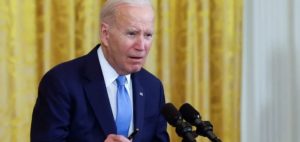
China’s plans to unilaterally change the status quo along the Line of Actual Control (LAC) in eastern Ladakh beginning in April or May 2020 gravely affected the peace and serenity in border areas, according to a report released on Monday by the Ministry of Foreign Affairs (MEA).
It stated that Indian military forces always responded “appropriately” to these attempts.
“China and India’s relationship is complicated. The two parties have agreed that maintaining peace and calm in the border regions is a necessary precondition for the overall growth of the bilateral relationship while the boundary question is still being resolved “According to the MEA’s annual report for 2022.The Chinese side, it added, “undertook several attempts to unilaterally alter the status quo along the LAC in the Western sector, starting from April–May 2020, which substantially affected the peace and calm along the LAC in the Western sector and harmed the development of the relationship.
Eastern Ladakh is referred to by the government as the Western section.
According to the MEA, talks have continued with the Chinese side in order to quickly achieve complete disengagement from all points of friction and the restoration of peace and tranquility in the India-China border regions. Both sides have agreed to resolve the issues along the LAC in eastern Ladakh through peaceful dialogue.But, it added, “Since then, the bilateral relationship has been damaged by China’s ongoing unilateral attempts to change the status quo.
“The resolution of the issues along the LAC in Eastern Ladakh continued to make some progress between the two parties.
This year, Gogra-Hot Springs (PP-15) in Eastern Ladakh experienced disengagement, following disengagement in Pangong Tso in February 2021 and the Gogra region in August 2021 “MEA stated.
It stated that there are still a few problems that need to be fixed.
The MEA stated, “India has maintained its engagement with the Chinese side through diplomatic and military channels to settle the outstanding concerns as soon as possible so as to restore peace and tranquility in the border areas.It said External Affairs Minister S Jaishankar held a meeting with the then-Chinese foreign minister Wang Yi during the latter’s visit to India on March 25 last year.
“The two ministers exchanged views on the border situation along the Line of Actual Control (LAC) in Eastern Ladakh. EAM conveyed to FM Wang Yi that restoration of normalcy will require a restoration of peace and tranquility,” the report said.
Apart from this, Jaishankar discussed key issues including the return of Indian students to continue their education in China.
The majority of Indian students had returned home following the COVID-19 pandemic.
The report also mentioned the meeting of the two foreign ministers in Bali on July 7 last on the sidelines of a G-20 meeting.



